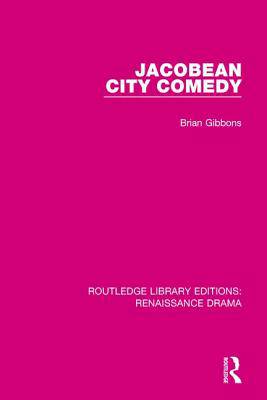
- Retrait gratuit dans votre magasin Club
- 7.000.000 titres dans notre catalogue
- Payer en toute sécurité
- Toujours un magasin près de chez vous
- Retrait gratuit dans votre magasin Club
- 7.000.0000 titres dans notre catalogue
- Payer en toute sécurité
- Toujours un magasin près de chez vous
Description
The first decade of the Jacobean age witnessed a sudden profusion of comedies satirizing city life; among these were comedies by Ben Jonson, John Marston and Thomas Middleton, as well as the bulk of the repertory of the newly-established children's companies at Blackfriars and Paul's. The playwrights self-consciously forged a new genre which attracted London audiences with its images of folly and vice in Court and City, and hack-writing dramatists were prompt to cash in on a new theatrical fashion.
This study, first published in 1980, examines ways in which the Jacobean city comedy reflect on the self-consciousness of audiences and the concern of the dramatists with Jacobean society. This title will be of interest of students of Renaissance Drama, English Literature and Performance.
Spécifications
Parties prenantes
- Auteur(s) :
- Editeur:
Contenu
- Nombre de pages :
- 196
- Langue:
- Anglais
- Collection :
Caractéristiques
- EAN:
- 9781138279964
- Date de parution :
- 25-09-18
- Format:
- Livre broché
- Format numérique:
- Trade paperback (VS)
- Dimensions :
- 156 mm x 233 mm
- Poids :
- 452 g

Les avis
Nous publions uniquement les avis qui respectent les conditions requises. Consultez nos conditions pour les avis.






